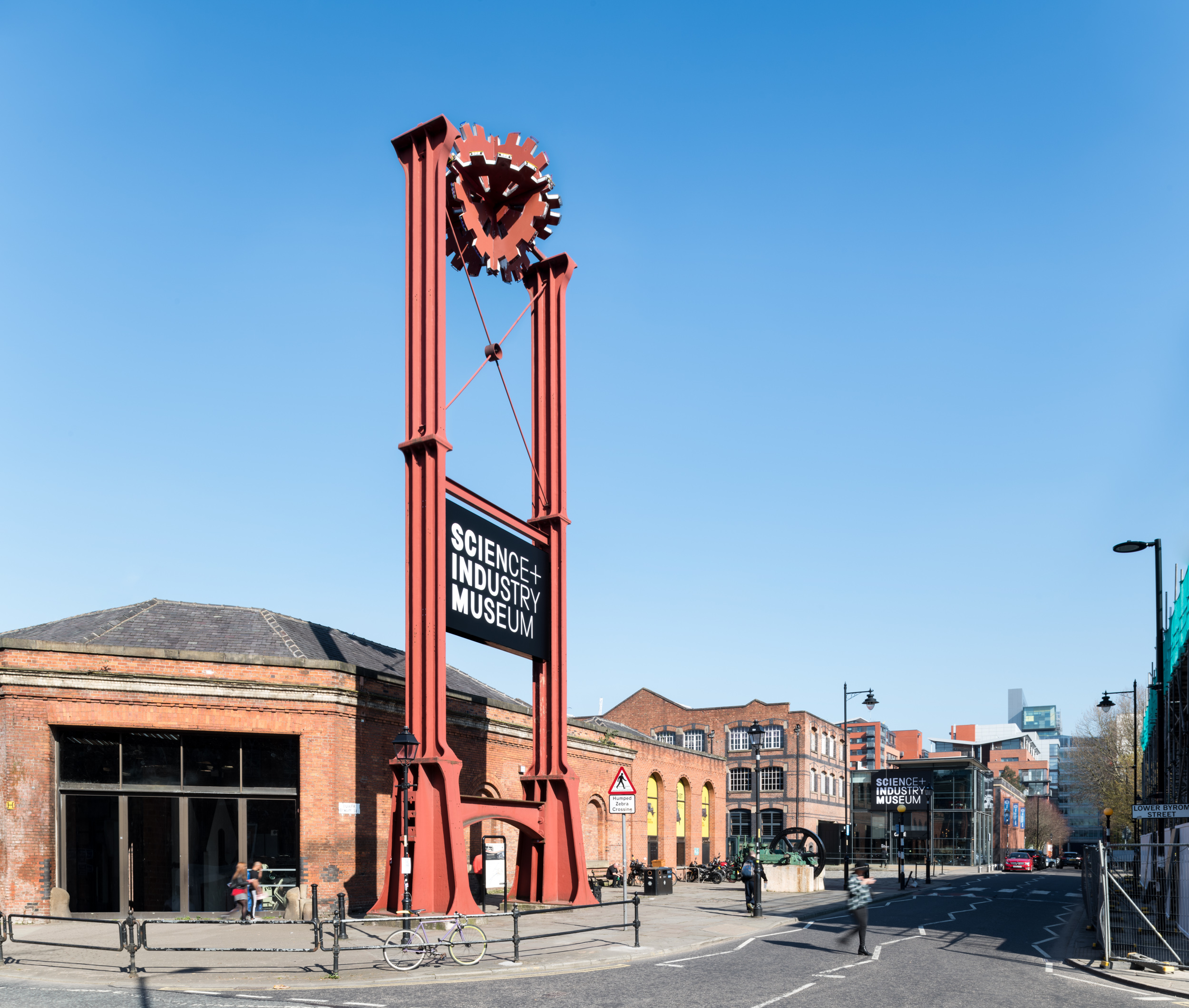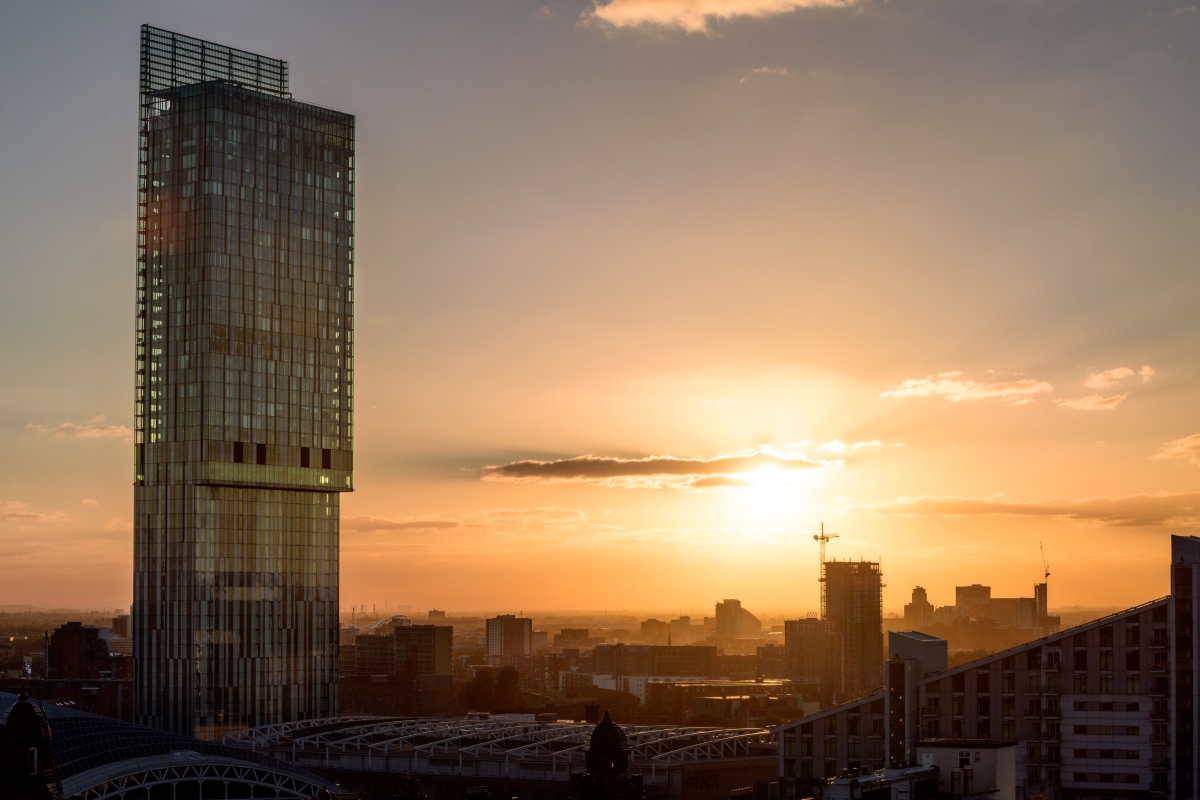Insights
University of Manchester ranked world number one in THE Impact Rankings
The University of Manchester has been ranked number one in the world in the Times Higher Education’s Impact Rankings, which measures social and environmental impact towards the 17 United Nations Sustainable Development Goals (SDGs).
It is the first time in the three-year existence of the ranking that a UK university has come top and is the only institution from the UK in the top ten this year.
The University works closely with Greater Manchester Local Enterprise Partnership, which recently unveiled the Greater Manchester Economic Vision for a fairer, greener, growing economy, and is leading the city-region’s drive for innovation to achieve net carbon neutrality by 2038.
With a record number of universities from 98 countries taking part in this year’s rankings, Manchester topped the overall table as well as achieving first place for its work towards the SDGs of Sustainable Cities and Communities and Responsible Consumption and Production as well as a second place for work in relation to Life Below Water.
The University’s research work in these specific SDGs includes mobilising urban living labs to create sustainable infrastructure; setting the standard for cleaner skies, and removing harmful pollutants from industrial wastewater with innovative technology.
But it isn’t just the University’s research in these areas that helped it top the rankings.
As the UK’s only university to have social responsibility as a core goal, Manchester plays a leading role in tackling the SDGs in four ways: research impact, learning and students, public engagement activity and responsible campus operations. These are realised in the pioneering civic engagement work of its cultural institutions, how students are engaged with the SDGs, its commitment to a zero-carbon future, paying staff a living wage, and the quality of reporting of progress on each of the 17 SDGs.
President and Vice-Chancellor, Professor Dame Nancy Rothwell, a board member with Greater Manchester Local Enterprise Partnership, said:
“We’re absolutely delighted to top the world in the Times Higher Education University Impact Rankings in 2021, but more importantly we’re pleased to be part of a growing community of universities committed to measuring and sharing their societal impact.
“We’ve taken part in the University Impact Rankings since their inception because we value the feedback they provide about our performance on each of the global goals. They cover every aspect of a university’s impact: our research, our teaching and learning, our engagement with the public and how we operate as sizeable organisations in our cities and regions.”
UN Under-Secretary-General and Executive Director of UNAIDS, Dr Winnie Byanyima – who is also an alumna of the University and honorary doctorate recipient – said:
“I will always be proud to be part of The University of Manchester family and its alumni community.
“This deserved recognition for its enormous social, environmental and economic impact is even more reason for everyone associated with the institution to be immensely pleased. I offer them my sincerest congratulations.”
Phil Baty, Chief Knowledge Officer, Times Higher Education, said:
“It is wonderful to see from this unique Times Higher Education data analysis that UK universities are making a major impact to global society across a whole range of individual Sustainable Development Goals.
“In a year that has seen record levels of participation in the impact rankings, with 1,240 universities from 98 countries and regions included across the 18 ranking tables, and the clear strength of institutions in every corner of the world when it comes to helping achieve these shared goals, the success of The University of Manchester and many British peers is testament to the vital role universities across the home nations are playing in helping to ensure a sustainable future.”
The University of Manchester has been named the world’s number one university in the Times Higher Education (THE) Impact Rankings
Science and Industry Museum awarded £4.3m for visionary decarbonisation project
The Science and Industry Museum has been awarded £4.3m by the Government’s Public Sector Decarbonisation Scheme to transform the museum’s environmental sustainability and place zero carbon technology at the heart of the museum’s visitor experience.
The museum explores how ideas can change the world, from the industrial revolution to today and beyond, on a globally significant industrial heritage site. In the 1800s, a well was built (in the lower ground floor of the world’s first railway warehouse, the museum’s Grade I listed 1830 Warehouse) to harness the power of the ground water. This natural resource will now once again be utilised by the installation of a new water source heat pump network including bore holes along with the latest green technologies.
This is a visionary, sector-leading project where the original and modern combine for a sustainable museum of the future.
The funding will enable an annual reduction in CO2 emissions for the museum of 515 tonnes (equivalent to the average C02 emissions of over 30 UK homes per year) on completion of the works, improving every year as the electricity grid decarbonises through increased zero carbon generation. It will support the Science Museum Group’s goal to reach a net zero target of 2033 (announced today as 17 years ahead of the national target) and Greater Manchester’s goal to become carbon neutral by 2038 (12 years ahead of the national target).
£2.6 million will enable the Power Hall (currently undergoing urgent restoration thanks to £6million from the DCMS) to reduce C02 emissions by 60% by 2030 through enhanced roof insulation and glazing to improve energy efficiency, an electric boiler and water source heat pumps to heat the space and now power the historic engines sustainably, and a new building management system to monitor and control energy use of this iconic gallery.
The funding will place carbon literacy and zero carbon technology at the heart of the museum’s story and visitor experience. It will transform the Power Hall into a landmark symbol of the future, as well as of historic engineering. As the birthplace of the Industrial Revolution, Manchester and the industrial heritage buildings of the museum (including the Power Hall) were the catalyst for scientific innovation and unprecedented change worldwide. Powered by fossil fuel, past industry has been a major cause of climate change, the most pressing challenge facing our planet. Now, the Power Hall will help prime future progress through inspiring future scientists, entrepreneurs and innovators in developing careers and skills to help achieve a green economy and the next (green) industrial revolution.
£1.7 million investment site-wide will pave the way for total electrification of the entire museum’s heating system, through additional an air source heat pump and a new electricity substation, enabling the museum to increase power to its seven-acre site sustainably (with 100% of electricity already purchased from renewable sources). Additional measures include LED lighting for the historic 1830 warehouse and instant hot water and a new building management system to monitor and control energy use of the New Warehouse which will enable a 65% reduction in CO2 emissions by 2030 of this key space which houses the main visitor welcome, Revolution Manchester, Textiles and Special Exhibitions galleries and the museum’s shops, café, bistro and conference centre.
Director Sally MacDonald said:
“The museum’s site represents where science met industry and the modern world began – what happened here changed the world, triggering a revolution in trade, technology, travel and time. We are delighted that this funding will enable us to continue to innovate as we create an environmentally sustainable museum for the future.”
Edward Clark, Programme Manager at Salix Finance, said:
“We’re really pleased that the Science and Industry Museum has benefited from the Public Sector Decarbonisation Scheme. Installing multiple technologies, including air and water source heat pumps, roof insulation and glazing across several sites is a great step for the museum towards reaching their carbon management plans and net-zero target.”
The Public Sector Decarbonisation Scheme was launched in September 2020 and offered grants of up to 100% of the cost of upgrading public buildings in 2021. The £4.3m funding for the Science and Industry Museum follows the £78m Government funding announced to support energy efficiency upgrades to more than 150 public buildings across the city-region in March.
Due to the short deadline, appointments to deliver the project have been made by Direct Award, with approval from the DCMS from existing design and main building contractors, previously secured through competitive tender including building contractors HH Smith and architects Carmody Groarke.
FURTHER INFORMATION
Work originally begun in 2019 to restore the globally important Grade II listed Power Hall, thanks to £6 million from the Department of Digital, Culture, Media and Sport and additional funding from the Science Museum Group to facilitate urgent and major repairs to the roof and a redisplay of the gallery content to show how Manchester changed the world.
Built in 1855 as the shipping shed for Liverpool Road Station, the Power Hall is one of the most beloved industrial heritage galleries in the country. It houses Europe’s largest collection of working steam engines, the majority of which were built in Manchester.
Scaffolding and securing some elements of this historic structure was completed in January 2020. The roof has undergone a critical drying out period, while the museum worked on renewed sustainability plans to take every opportunity to de-carbonise the building before work starts on the roof and inside the building in the coming months.
Following this additional infrastructure work, scaffolding is due to be dismantled in 2022, internal work is due to begin in early 2022 with the Power Hall now due to re-open to the public in 2023.
In years to come, this multi-sensory gallery, full of the sounds of machines, the whistle and smell of steam and incredible personal stories will show how Manchester provided the power that changed the city and the world—from the way we work to the consumer society we live in. In revealing more about the human skill and ingenuity of the past, the Power Hall will inspire the engineers and innovators of the future.
The decarbonisation project is part of the Science and Industry Museum’s multi-million-pound restoration plan, which will conserve and further open up its globally significant buildings and bring to life the story of the site and past, present and future ideas that change the world. Housing the world’s oldest surviving passenger railway station and world’s first railway warehouse in the heart of the world’s first industrial city, alive with science and technology today, a more sustainable museum is being created to provide inspiring experiences for everyone. Information on all current projects including the restoration of the Power Hall can be found on the We are changing page.

Scholarships to boost digital skills among underrepresented and disadvantaged groups
Greater Manchester Combined Authority and Lancashire Digital Skills Partnership are partnering with Northcoders, a Manchester-based software development training provider, to offer 24 fully-funded scholarships to people who are disadvantaged or underrepresented in the digital industry as part of the Fast Track Digital Workforce Fund.
The scholarships are open to the following Greater Manchester or Lancashire residents: disadvantaged young people (19+) who may be unemployed or under-employed; those in low pay sectors; those displaced and at risk of redundancy due to Covid-19 and in need of retraining; the over-50s; ethnic minorities; women or gender minorities; and those with a disability or health condition.
The 14-week coding bootcamp will start on Tuesday 4 May. All learning will be delivered online, however, Northcoders’ main campus in Manchester city centre will be reopening on 4 May, so students will be able to learn in person for as many days a week as they feel comfortable.
During the course, recipients of the scholarships will learn all the skills they need to become a full stack software developer. Each bootcamp is an industry-led experience and is constantly updated to match the skills employers want. Northcoders also delivers a “Careers Week” which includes industry insight and preparation sessions, an in-depth CV workshop, tech interview advice and practice, and tech test insights.
Applications for the diversity scholarship can be made here.
Lou Cordwell, Chair of the Greater Manchester Local Enterprise Partnership (GM LEP), said:
“Addressing the inequalities that the pandemic has amplified is a central part of our Economic Vision for Greater Manchester. The Fast Track Digital Workforce Fund does vital work by providing under-represented and marginalised groups in the digital and tech sectors with accessible routes into digital employment.
“This scholarship programme will bridge the digital divide by giving residents valuable skills which can help them find meaningful employment. It also helps employers, boosting the talent pool of people with sought-after software development skills.”
The Fast Track Fund is a joint venture between Department for Digital, Culture, Media and Sport (DCMS), Greater Manchester Combined Authority (GMCA) and Lancashire Digital Skills Partnership (LDSP), developed to address locally identified digital skills gaps and support Greater Manchester and Lancashire residents with accessible routes into digital employment. The Fund has been extended through the Department for Education Digital Bootcamps to maximise on this work, giving residents the opportunity to build up their digital skills and fast-track to an interview with a local employer.
Ann Dean MBE, Chair of the Lancashire Digital Skills Partnership and LEP board director, said:
“Like everywhere, both Lancashire and Greater Manchester have been hit hard by the pandemic with redundancies and recruitment freezes impacting thousands across the region. Unfortunately, certain groups have been disproportionately affected and we understand that there is a real need for more retraining opportunities. Our aim with this scholarship programme is to directly help some of those people who have been negatively impacted so they are able to forge a new career.”
Amul Batra, Chief Partnerships Officer at Northcoders, added:
“We are delighted to be partnering with Greater Manchester Combined Authority and Lancashire Digital Skills on this scholarship programme. We are confident it will be a platform that will directly benefit individuals but also help to make tech a more diverse and inclusive sector.”

StreamGM shines a spotlight on Greater Manchester culture
A new digital streaming service will showcase diverse cultural events and acts from Greater Manchester to local, national and global audiences.
StreamGM builds on the incredible achievements of United We Stream GM, launched on April 3rd, 2020, in swift response to the first UK lockdown.
It will provide specialised ‘hands on’ industry experience for young people, in the production and promotion of digital broadcasting.
StreamGM will kick off proceedings on April 12 as part of the Digital City Festival with an audio-visual DJ set themed around Mancunian music and culture.
Culture is a key ingredient among the factors that make Greater Manchester an attractive place to live, work, invest, study and visit.
Mayor of Greater Manchester, Andy Burnham, a GM LEP board member, said:
“United We Stream GM was an incredible success, raising hundreds of thousands of pounds for people working in the culture industry at a time when through no fault of their own they were not able to work, and put smiles on the faces of people in Greater Manchester and across the world when they needed it most.
“Like everyone involved, I’m excited for the next stage of this journey as we launch StreamGM to showcase all the local talent we have right here in Greater Manchester.
“While we are all looking forward to getting back to live theatre, music and everything else our culture sector has to offer, this world class digital platform will play an essential role in our recovery throughout 2021.
“Many venues will not be able to reopen fully until the second half of the year so by prioritising digital development such as this, we can continue to support our culture sector so they can later support us all through our personal recoveries from what we have experienced through the pandemic.”
StreamGM co-producer Marie-Claire Daly said:
“We’re a small team driven by an immense shared love of music and culture, and will continue to bang the drum for Greater Manchester.
“Live streaming has been around for years, but worldwide lockdowns and social distancing meant no more in-person events or performances, so it became a source of escapism as audiences transitioned to live streamed experiences, connecting together, virtually.
“Despite the U.K roadmap into reopening, the exponential digital broadcasting boom will continue as we slowly move into recovery from the pandemic, and streaming will play a valuable part in both bolstering and enhancing the culture and live events sector for years to come.”
For more information about StreamGM please go to www.streamgm.co.uk

Ofcom to build tech hub in Manchester ahead of online safety role
Ofcom has announced plans to open a major new digital and technology hub in Manchester, with the creation of up to 150 new jobs by 2025.
Ofcom regulates communications in the UK – from broadcasting to telecoms and the postal service. It is now preparing for new duties to help make the internet a safer place – in addition to a new role making sure telecoms networks have adequate cybersecurity.
The new online regulation will be a world first.
To help prepare, Ofcom is seeking new recruits to provide digital and technical expertise for the new Manchester hub – drawing on the city’s reputation as a thriving centre for technology and innovation. The new hub is expected to be operational by the summer.
Ofcom said Manchester offers a highly skilled workforce, alongside the research strengths of world-class universities and their deep pool of graduate talent.
Some of Ofcom’s partner organisations – including GCHQ and the National Cyber Security Centre – already have Manchester bases.
Ofcom will also be expanding in Cardiff, Belfast and Edinburgh, offering a range of roles across our remit of work.
Dame Melanie Dawes, Chief Executive of Ofcom, said:
“We’re delighted to be preparing for a new digital and technology hub in Manchester. We want to tap into the huge array of tech, digital and data talent in the city, as we prepare for pioneering new work around online safety and security.”

BBC announces further expansion of MediaCityUK base
The BBC has revealed ambitious plans for more power and decision-making in the North, with further expansion of its presence at MediaCityUK in Salford.
Currently, half the BBC is based outside of London, with departments including Sport, 5 Live and Children’s having re-located to MediaCityUK in Salford in 2011.
Proposals set out in The BBC Across the UK plan will give even more prominence to stories from communities across the North region as part of the biggest creative and journalistic reshaping of the BBC in its history.
Already home to 3,500 BBC staff, the corporation said that its MediaCityUK base will grow even more, making it:
- The main base for the BBC’s digital and technology teams, a global centre of excellence, supported by digital teams in Glasgow, Cardiff and London.
- BBC Radio 3 and BBC Radio 6 Music will be rooted in the North with more than 50% of their broadcast hours coming from Salford.
- Hit BBC One daytime show Morning Live will broadcast from Salford year-round.
- The Writersroom, the BBC’s home for new writing talent, will be expanded in Salford with a new Head of New Writing based at BBC North, tasked with discovering and developing new writers in the North and across the whole UK.
- A new assistant comedy commissioner will be based in Salford working with talent in the North on new and existing titles.
- There will be a new commercial operation for BBC Children’s working out of Salford.
- Newsnight will be presented from different bases throughout the year, including from Salford.
BBC North in Salford is already home to major BBC departments including BBC Sport and BBC Children’s.
It is also home to BBC Breakfast and BBC Radio 5 Live plus programmes such as Match of the Day, Blue Peter, Newsround, Football Focus and the BBC’s regional and local services for the North West.
The BBC was the catalyst for the development of MediaCityUK in Salford where firms like ITV, The Hut Group and Kellogg’s are now based.
A KMPG report published in 2021 found that since the BBC moved to Salford, employment in the creative sector in the city has grown by 142% and the number of creative businesses has grown by 70%.
Director-General of the BBC, Tim Davie, said:
“Our mission must be to deliver for the whole country and ensure every household gets value from us. These plans show how we want to be closer to audiences, create jobs and investment and develop and nurture talent.
“Now, as we look to the future, we must play our part in supporting the UK’s social and economic recovery; rebuilding the creative sector and telling the stories that need to be heard from all corners of the country.”
The plan will mean more than a thousand extra jobs beyond London – as well as supporting hundreds of new roles in the tv and audio production sector across the nations and regions.
Digital and creative is a global frontier sector strength within the Greater Manchester Local Industrial Strategy and GM Economic Vision.
You can read more about The BBC Across the UK plan here.

MediaCityUK
